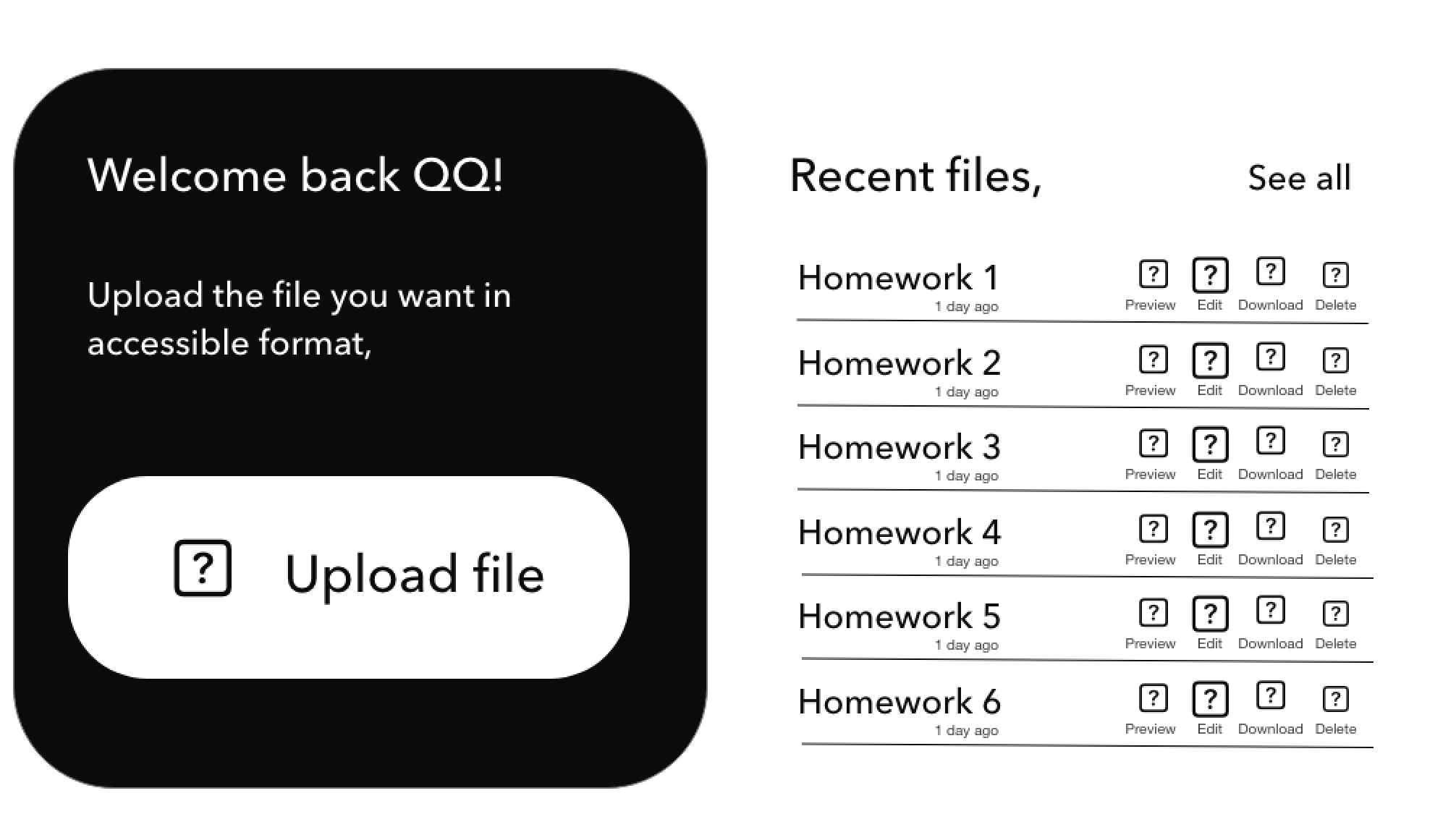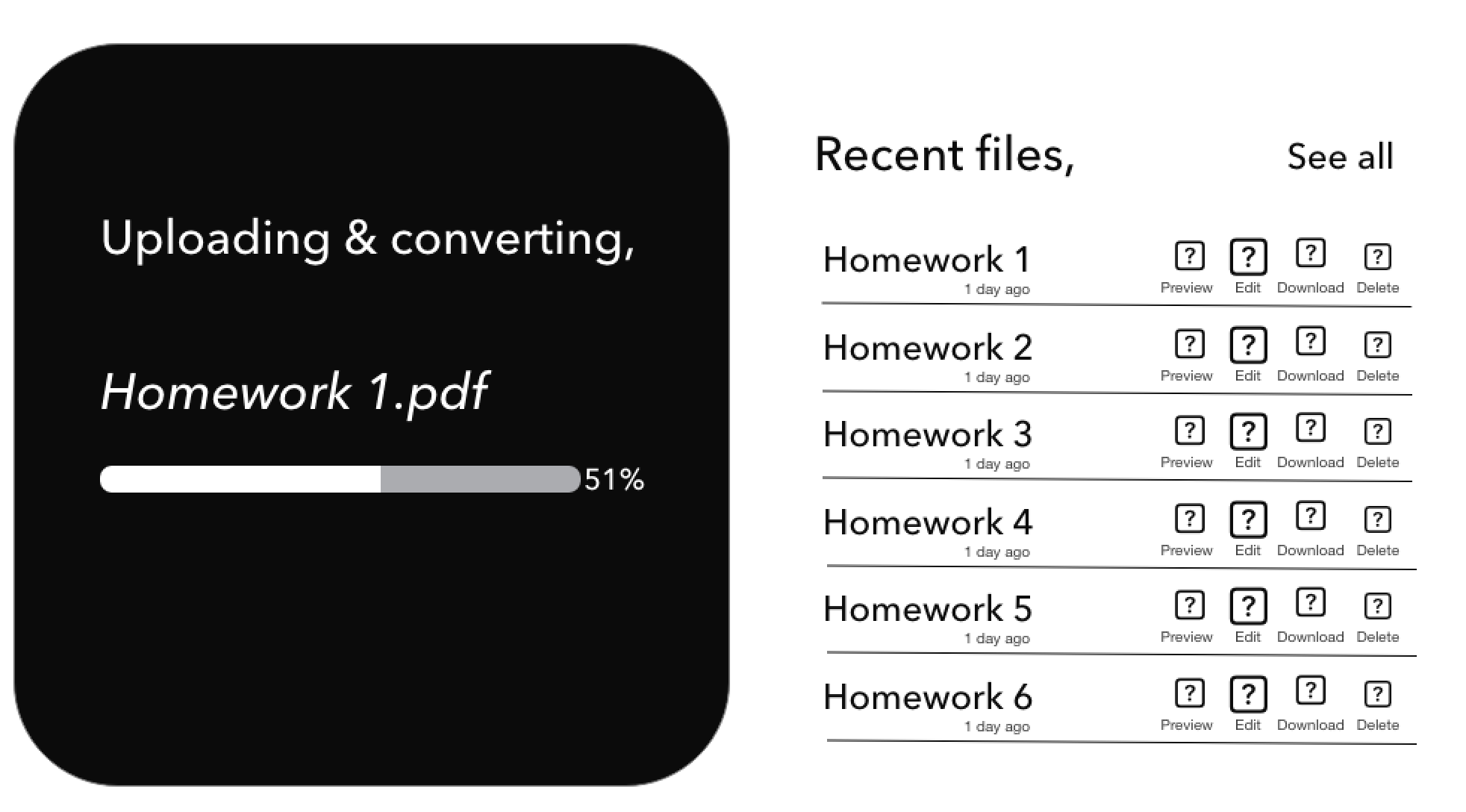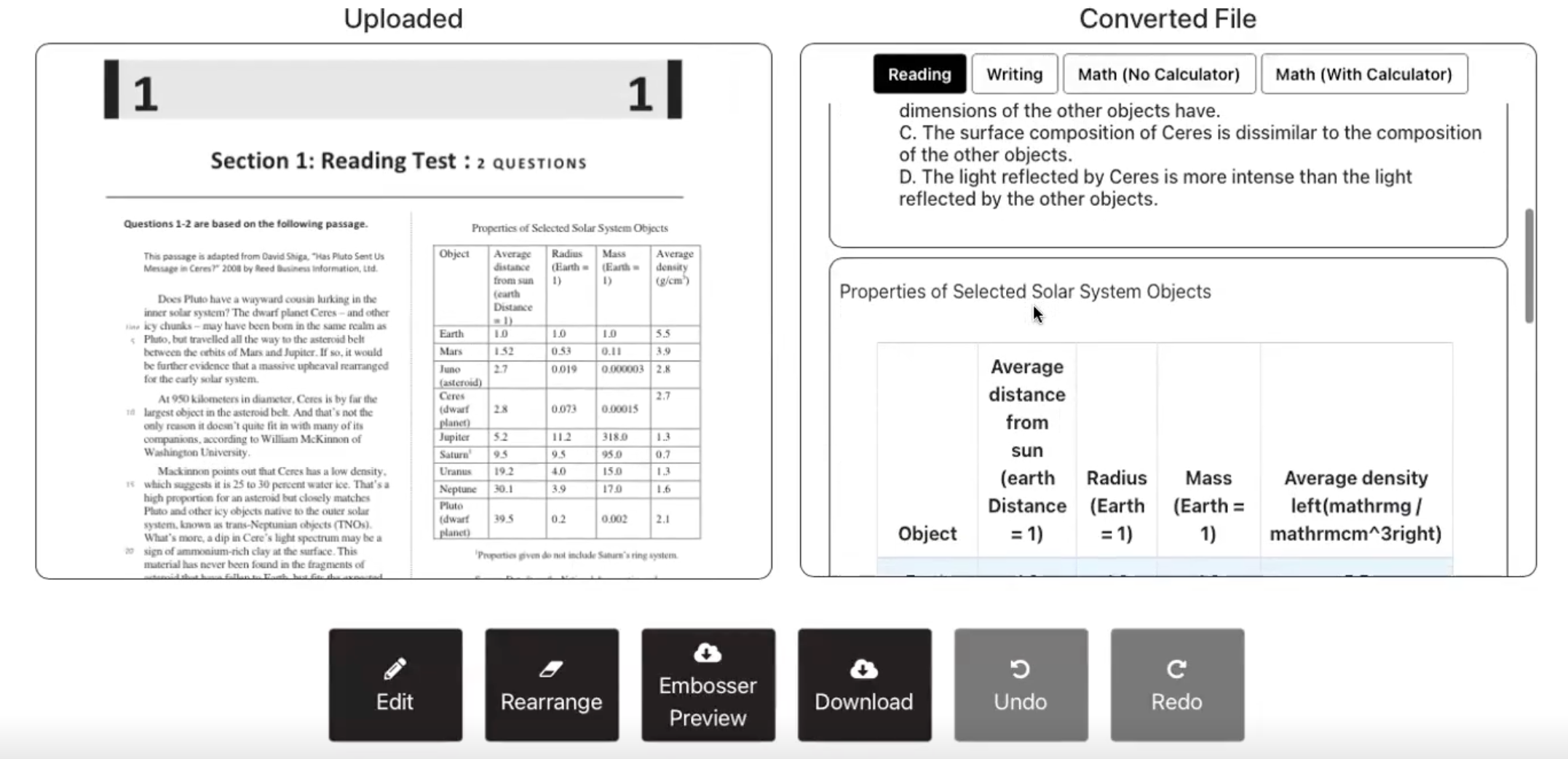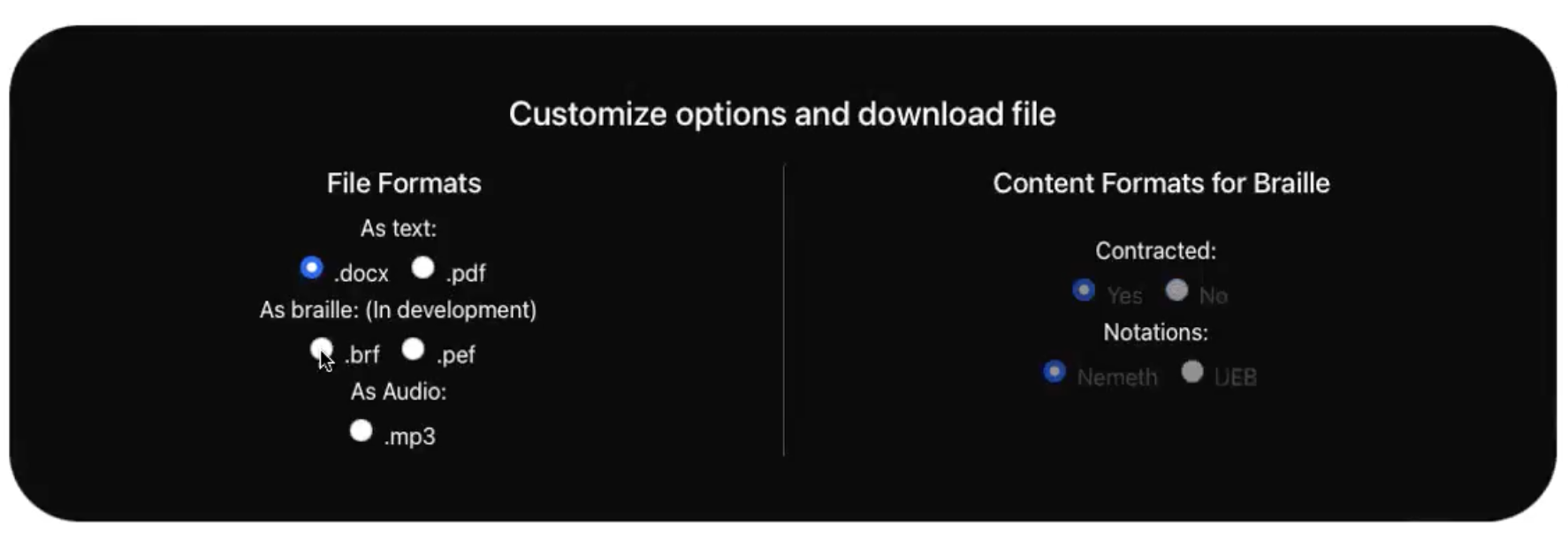Dynamic Visual-to-Tactile Transcribing
Upload scanned PDFs to automatically extract textual, mathematical, tabular, and graphical content into editable blocks. Edit directly in the browser and rearrange blocks for custom flow.
Automating Visual-to-Accessible STEM Materials with Human-in-the-Loop Intervention
Kanak is a web-based tool that streamlines the process of converting visual educational materials (e.g., SAT worksheets, handouts, quizzes) into accessible formats such as BRF (braille) and DOCX for screen reader access. It combines automation with human-in-the-loop editing so accessibility practitioners can quickly review, correct, and finalize content for blind and low-vision (BLV) learners.
Goal: End-to-end visual-to-accessible transcription with inline editing across content types (text, math, tables, graphics).
Use Case: Designed for practitioners and TVIs supporting BLV students access STEM materials.
Approach: Document parsing, structured extraction, and cross-platform support.
Kanak supports an upload–extract–edit–export flow with editing support across diverse learning material content types (e.g., text, mathematical expressions, tables, and graphics.)






Steps of Kanak’s workflow
Upload scanned PDFs to automatically extract textual, mathematical, tabular, and graphical content into editable blocks. Edit directly in the browser and rearrange blocks for custom flow.
Use specialized editors for each content type—text editor, math equation editor, spreadsheet-like table editor, and a graphics editor for adjusting labels, axes, and structure.
When automated extraction is imperfect, redraw or revise graphics with built-in tools (shapes, lines, styles) to ensure tactile interpretability for BLV students.
Export BRF for braille devices and embossers, and DOCX for further editing/screen reader access. Supports Nemeth code for math and optional contracted braille.
Kanak uses a pipeline with a ReactJS frontend and NodeJS backend.